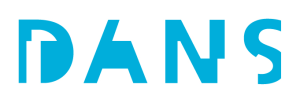Essentials 4 Data Support (English) - Public
Xin lỗi, hoạt động này hiện đang bị ẩn
Section outline
-

Mission
The Essentials 4 Data Support course aims to contribute to professionalization of data supporters and coordination between them. Data supporters are people who support researchers in storing, managing, archiving and sharing their research data.
Target group
The course focuses on anyone wanting to support researchers in storing, managing, archiving and sharing research data: a data supporter. Think, for instance, of (data) librarians, IT staff and researchers with duties involving data management.
More details on how to approach this course? Two ways to get started (RDNL website)
-

In this chapter we briefly outline the history of an area of research support that has become indispensable: research data management support. We show how data management is a means to shape integrity and reproducibility of scientific research. Finally, we highlight a number of concepts - such as the research lifecycle, open science and FAIR data - and we consider the various types of data supporters around.
Learning goals
After this chapter:
- You will be able to indicate what information is considered research data;
- You will be able to explain that the meaning of this research data varies per target group and per phase of the research lifecycle;
- You will understand how open science, data management and FAIR data shape the integrity and reproducibility of scientific research;
- You will have a global overview of the various types of data supporters;
- You will have a broad overview of a number of information sources that can further help you to get up-to-date in data management support.
-

The planning phase is the phase that precedes the collection of new data or the (re)use of existing research data. In this section we look at a number of tools - preregistration and data management planning - that can contribute to scientific integrity, reproducible research and research output which is as FAIR as possible.
Learning goals
After this chapter:
- You will get acquainted with the principle of integrity and reproducibility by design;
- You will be able to identify the elements which should be present in a data management plan (DMP);
- You will get acquainted with preregistration as a tool to increase integrity and reproducibility.
-

In this chapter we will discuss a number of good practices for storing research data, keeping it safe, findable and readable. We will also be looking at environments in which researchers can work together on shared data.
Learning goals
After this chapter:
- You will have a rough impression of the various ways to store, backup, organise and document research data;
- You will be able to indicate which data formats are suitable for long-term storage of research data;
- You will be able to define the pros and cons of the various storage strategies;
- You will have a rough overview of the overlap and differences between facilities for storing data, data management systems and virtual research environments.
-

How and where do you archive or publish data? What is needed before (future) others can reuse research data? This chapter focuses on reaping the benefits of data management.
Learning goals
After this chapter:
- You will know what a data archive is and you will know a number of ways to find data archives and datasets;
- You will be able to identify the selection criteria that determine whether a dataset is eligible for inclusion in a data archive;
- You will be able to indicate the significance of certification for data archives;
- You will be able to identify various types of data publication;
- You will know what data citation is, what the advantages are, which parties play a role in enabling data citation, what a DOI is, and how you can register it.
-

During the collection, sharing and archiving of research data, researchers irrevocably face ethical considerations and legal obligations. What does copyright law say about research data? How do laws and practices relate to each other? How can you advise researchers and to whom can you forward them if they have questions about the GDPR, consent, anonymisation or DPIA? These kinds of questions are discussed in this chapter.
Learning goals
In this chapter:
- You will be able to state which laws play a role in dealing with research data, and you can indicate what those laws are about;
- You will understand the broad implications of privacy legislation for the sharing of research data;
- You will have an overview of different types of data policies;
- You will have an overview of available data licenses and their use.
NOTE The guidelines and recommendations in this chapter do not constitute legal advice. In case of doubt, it is important to seek professional legal advice. -

What are the forces that you - as a data supporter/data steward - have to take into account? How are other institutions shaping data stewardship? How can you match your expertise with the questions researchers have about data management? How can you organise data support? You will learn more about this in this chapter.
Learning goals
After finishing this chapter:
- You will have become aware of the influence spheres you, as a data supporter, move in;
- You will have an overview of ways to increase the involvement of researchers in data management and the sharing of research data;
- You will have an overview of a number of testimonials and scientific evidence that shows how doing reproducible research and sharing research data benefits researchers;
- You will be able to explain how the RDNL front office - back office model may serve as one of the ways to organise data support.
